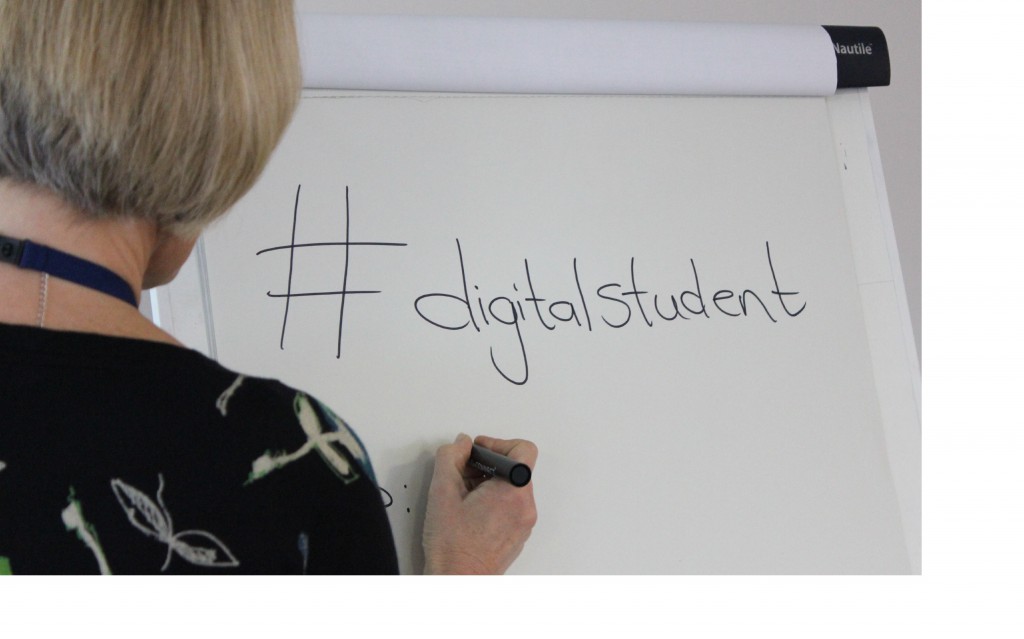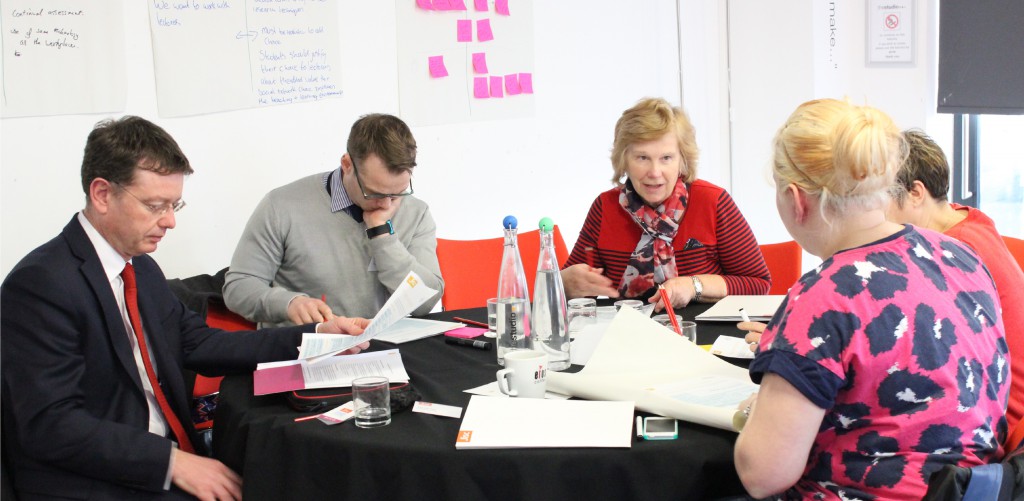This week I attended the second in a series of events taking place throughout the UK as part of the FE Digital Student Project and was delighted to see plenty of stimulating discussions and thought-provoking presentations centred around the theme of learners’ expectations and experiences of using technology in further education.
The day included a range of practical and participatory workshops designed not only to tease out what the challenges are facing colleges in meeting the needs of different digital learners, but also, critically, what actions colleges can take forward to meet these challenges head on. One of the key findings from the focus groups was that it can often be all too easy to make assumptions on behalf of the digital needs of our learners, but a more appropriate and enriching approach is to ensure that an open dialogue between staff and learners is established from the start, which empowers learners to take an active role in the planning and provisioning of support.
Sarah Knight, Senior Co-Design Manager at Jisc, introduced the day by providing an overview of the programme and how the attendees could get involved and make the most out of the day. There was plenty of Twitter traffic on the #digitalstudent hashtag throughout the day (from attendees physically present and those following with interest from afar), some of the highlights of which can be found on Storify and Sarah also asked attendees to share their thoughts using Padlet by asking “What one thing should colleges do to enhance their learners experience?” Using a wiki on the day, such as Padlet, showcased just one example of how technology could also be used to help facilitate the communication flow between learners and staff, and the plan is to add to this padlet with insights from future consultation events taking place across the UK.
The intention throughout this series of consultation events is to build up a bank of resources, crowdsourced from the community to help inform future strategy. To that end, my colleague Chris Thomson also at Jisc conducted a series of interviews throughout the day with attendees from a variety of roles (teachers, learners, librarians, directors, etc) and posed that same question as Sarah in order to gain some insights on both the challenges faced by colleges and also what people are currently doing to address these challenges. All of the interviews are freely available as Voxpops on Soundcloud and the range of different roles provided a successful lens on the day in raising a shared understanding of the issues from differing perspectives.
Dr Liz Browne, Head of Centre of Education Consultancy and Development, then provided further context by exploring the literature review that helped shape and inform the FE project. The FE study builds on much of the previous work carried out by Jisc and partners in the HE Digital Student project and I was particularly interested to see how institutions from different sectors are addressing this same challenge. I was also curious to see whether or not the themes and lessons learned from the HE study had the same resonance for FE learners too. The diversity and richness of the FE learner cohort was evident from the research and there is still scope for further research in this area.
The framework provided by the Becta funded ‘Learners in Context’ study was used by Liz to emphasise three key areas across a spectrum of learner experiences with technology, including:-
- unconnected and vulnerable learners
- mainstream pragmatists
- specialist enthusiasts
Although the boundaries between these three areas clearly blur (and are more to help crystallise our own thinking than provide labels that will have no meaning for learners themselves), this helped us to think about the kinds of support and practises colleges need to consider and develop in tandem with learners. The group discussions that followed provided plenty of food for thought and there was certainly a fine balancing act for colleges between allowing learners the freedom to innovate and explore emerging technologies, but also ensuring that more vulnerable learners could learn safely by practising in a “walled garden” environment first, before venturing out into the endless possibilities that the internet offers.
After lunch the inspiring Deborah Millar was unleashed on us with her infectious enthusiasm and unique style of presenting. As Head of e-Learning at Blackburn College Deborah was no stranger to the challenges faced by college staff and emphasised the need to be brave, to not shy away from trying new things and most of all – to include the learners themselves. Deborah’s presentation explained how the Digipals project at Blackburn College had recruited an invaluable team of learners to help share and cascade best practice in technology use throughout the college. More details on this can be found in Deborah’s somewhat cheesey (her words, not mine!) YouTube video where it’s clearly evident that a bit of humour is injected into everything they do to make learning fun.
From a staff perspective, one of the recurring themes that came out of all the discussions during the day was the importance of recognising that everyone within college has a role to play in creating a dynamic and engaging experience that will meet the expectations of today’s (and tomorrow’s) learners. First of all a senior manager with an over-arching influence needs to assume ownership for driving the digital vision of the college forward and ensuring that the policies and processes are in place that empower staff and learners; teachers by embedding technology appropriately into their subject areas; librarians by providing access to and support with digital resources; estates staff by ensuring learning spaces allow for collaborative working and for learners to use their own devices; and IT staff by providing a robust infrastructure to enable all of this to happen.
If you’d like to find out more and get involved why not book on one of our future consultation events taking place across the UK – and feel free to bring your learners with you too!


